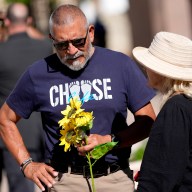Council members amped up pressure on Mayor Michael Bloomberg yesterday to do more to accelerate research about a possible 9/11 cancer link.
Last year, a report released by the National Institute for Occupational Safety and Health found there was not enough evidence to determine the inhalation of World Trade Center dust caused cancer.
The city Department of Health and Mental Hygiene is currently conducting its own cancer study, but Dr. Carolyn Greene from the department testified at a Council hearing yesterday that the city needs more resources to conduct its research.
Manhattan Councilman Fernando Cabrera blamed the lack of funding squarely on Bloomberg.
“I agree with you, you should receive this funding and that’s the job of the mayor,” said Cabrera. “The mayor had 10 years to be able to get enough funding.”
Bronx Councilman Oliver Koppell agreed, saying the mayor should be fighting harder to get cancer included as one of the health conditions covered under the Zadroga Act. “The mayor’s the head of the city administration. I understand that it’s not the city’s decision but the city could recommend it,” Koppell said.
“The city has always stood up for our first responders and supported the Zadroga bill, which requires the federal government to review health studies on a regular basis to determine if there was a link between 9/11 work and cancer,” said Bloomberg spokeswoman Samantha Levine. The bill also provides funding for the WTC Centers for Excellence, three centers in New York City that provide free testing and care for first responders.
The FDNY published its own cancer study in September, showing that firefighters who responded to 9/11 are more likely to contract cancer than those who did not. Mt. Sinai Medical Center is also working on a study about a possible 9/11 cancer link, said Levine.
Not on the list
The administrator of the World Trade Center Health program, Dr. John Howard, determined in July there was not sufficient evidence for cancer to be added to a list of covered medical conditions, even though many particulates from the fallen towers are carcinogens.














